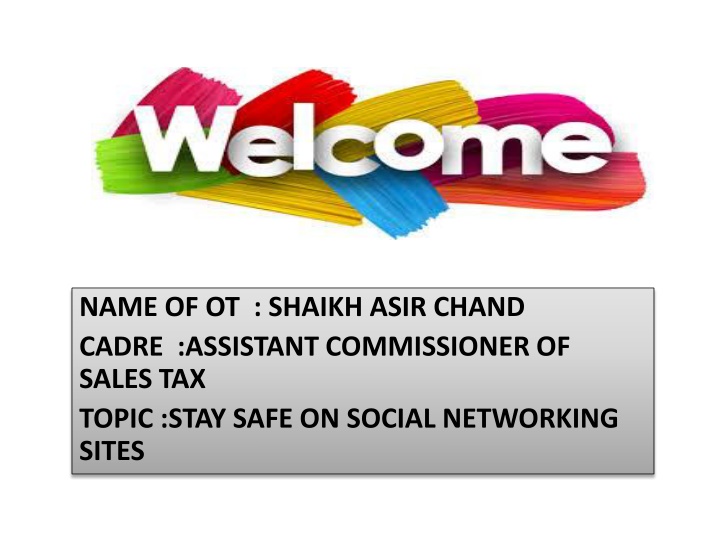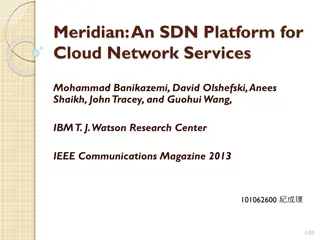
Stay Safe on Social Networking Sites - Tips to Protect Your Privacy
Learn how to stay safe on social media platforms and protect yourself from cyberbullying, identity theft, and other risks. Follow tips to limit personal information sharing, check privacy policies, and keep software updated for online safety.
Download Presentation

Please find below an Image/Link to download the presentation.
The content on the website is provided AS IS for your information and personal use only. It may not be sold, licensed, or shared on other websites without obtaining consent from the author. If you encounter any issues during the download, it is possible that the publisher has removed the file from their server.
You are allowed to download the files provided on this website for personal or commercial use, subject to the condition that they are used lawfully. All files are the property of their respective owners.
The content on the website is provided AS IS for your information and personal use only. It may not be sold, licensed, or shared on other websites without obtaining consent from the author.
E N D
Presentation Transcript
NAME OF OT : SHAIKH ASIR CHAND CADRE :ASSISTANT COMMISSIONER OF SALES TAX TOPIC :STAY SAFE ON SOCIAL NETWORKING SITES
WHAT IS SOCIAL MEDIA Social networking is a global revolution, enabling billions of people worldwide to stay in touch with their friends, share experiences and photographs and exchange personal content. For many users, it has become a way of life.
Risks of Social Media Cyberbullying. Not protecting their own privacy. Sharing information with people they don't know or trust. Losing control over where a photo or video has been shared. Identity theft. Seeing offensive images and messages. Meeting people in real life who they only know online. Beware of Scams. Advertisements & Collecting Your Data. FAKE APPS AND MALICIOUS LINKS.
RISKS Disclosure of private information by either yourself or friends/contacts. Cyber-stalking. Access to age-inappropriate content. Online grooming and child abuse. Phishing. People hacking into or hijacking your account
How can you protect yourself? Limit the amount of personal information you post Remember that the internet is a public resource Be wary of strangers Be skeptical Evaluate your settings Be wary of third-party applications
STAY SAFE Check privacy policies. DON T ACCEPT REQUESTS FROM UNKNOWN PROFILES. Keep software particularly your web browser, up to date . Use strong passwords . Use and maintain anti-virus software. THINK BEFORE YOU SHARE
Prevention Continued Never open unidentified or unsolicited messages. Remember to log out of online accounts. When not in use, make sure webcams are shut off to prevent spying/hacking. Do not share personal information online (phone number, address, social security number, or school information). Check for pornography, sexual communication, or any other inappropriate content on your child s computer. You can ultimately be held liable for any misuse of your social media accounts committed by a third party. Teach children to trust their instincts if they feel something is wrong.






















